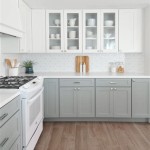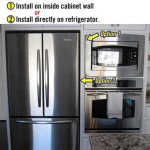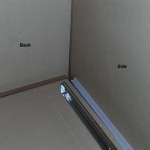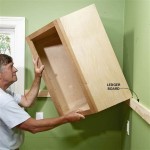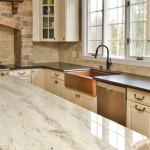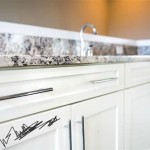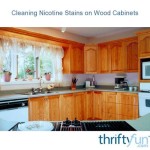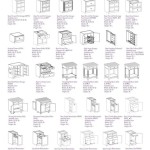Which Is The Best Countertop For Your Kitchen? A Comprehensive Guide
Selecting the ideal countertop for a kitchen remodel or new construction project is a critical decision that balances aesthetics, functionality, durability, and budget. The “best” countertop is subjective and depends on individual needs and preferences. This article provides a comprehensive overview of popular countertop materials, exploring their pros and cons to aid in making an informed choice.
Granite: A Timeless and Durable Option
Granite countertops have long been a favored choice for kitchens due to their inherent beauty and resilience. Composed of natural stone, granite exhibits unique patterns and color variations, ensuring each slab is one-of-a-kind. Beyond its aesthetic appeal, granite is acclaimed for its durability, resistance to heat, and ease of maintenance.
Pros:
Granite is exceptionally heat resistant, allowing for the placement of hot pots and pans directly onto the surface without causing damage. Furthermore, granite is highly resistant to scratches and stains, making it suitable for high-traffic kitchens. With proper sealing, granite resists water absorption and prevents the growth of bacteria and mold. The natural variations in color and veining provide a sophisticated and elegant look that complements various kitchen styles. Finally, granite adds significant value to a home, making it a worthwhile investment.
Cons:
Granite is a porous material and requires periodic sealing to prevent stains and bacterial growth. The cost of granite, including material and installation, can be higher compared to other countertop options. The substantial weight of granite necessitates robust cabinet support to prevent structural issues. While generally resistant, granite can chip or crack if subjected to significant impact. The natural variations in color can make matching slabs difficult, potentially leading to inconsistencies in appearance if multiple slabs are needed.
Quartz: Engineered Stone with Enhanced Functionality
Quartz countertops, often referred to as engineered stone, are manufactured using a combination of natural quartz crystals and resins. This process results in a non-porous, highly durable surface that replicates the look of natural stone while offering enhanced performance characteristics.
Pros:
Quartz is non-porous, eliminating the need for sealing and providing superior resistance to stains, bacteria, and water absorption. The consistency of color and pattern in quartz prevents variations and allows for uniform aesthetics across large surfaces. Quartz is highly durable and resistant to scratches, chips, and heat, making it ideal for busy kitchens. The manufacturing process allows for a wide range of colors and patterns, including options that mimic the look of granite and marble. Quartz countertops are generally easier to maintain than natural stone, requiring only regular cleaning with mild soap and water.
Cons:
While heat-resistant, quartz is not entirely heatproof and can be damaged by prolonged exposure to high temperatures. Quartz countertops can be more expensive than some other countertop materials, although prices can vary depending on the brand and pattern. While pattern consistency is a benefit, some may view the lack of natural variation as less aesthetically appealing compared to natural stone. The edges of quartz countertops can sometimes appear artificial, particularly with certain fabrication techniques. Repair of chips or cracks in quartz can be more challenging than with some other materials.
Solid Surface: Seamless and Versatile
Solid surface countertops are composed of acrylic or polyester resins combined with mineral fillers. This synthetic material offers a seamless appearance and can be molded into various shapes and sizes, providing design flexibility.
Pros:
Solid surface countertops can be fabricated with seamless joints, creating a smooth, continuous surface without visible seams. The non-porous nature of solid surface resists stains, bacteria, and water absorption, making it easy to clean and maintain. Solid surface can be molded into integrated sinks and backsplashes, eliminating seams and creating a cohesive design. A wide range of colors and patterns are available to suit various kitchen styles. Minor scratches and stains can often be sanded or buffed out, restoring the surface to its original condition.
Cons:
Solid surface is less heat resistant than granite or quartz and can be damaged by hot pots and pans. It is also more susceptible to scratches and dents compared to harder materials like granite or quartz. While minor damage can be repaired, more significant damage may require professional repair or replacement. Solid surface countertops can sometimes appear less luxurious compared to natural stone or engineered stone options. The cost of solid surface can be comparable to mid-range granite or quartz, but the overall durability and aesthetic are less premium.
Laminate: An Economical and Customizable Choice
Laminate countertops are constructed from layers of paper or fabric bonded to a particleboard or MDF core, topped with a decorative layer and a protective coating. Laminate offers a cost-effective and versatile countertop solution.
Pros:
Laminate is one of the most affordable countertop options, making it suitable for budget-conscious projects. Laminate is available in a wide variety of colors, patterns, and textures, including options that mimic the look of natural stone and wood. Laminate is relatively easy to install, making it a DIY-friendly option. The surface is stain resistant and easy to clean, requiring only regular wiping with mild soap and water.
Cons:
Laminate is not heat resistant and can be damaged by hot pots and pans. It is also susceptible to scratches, dents, and chips. Once damaged, laminate is difficult to repair, often requiring replacement of the entire countertop. Laminate countertops can appear less luxurious compared to natural stone or engineered stone options. Water can seep into seams and edges, causing the core material to swell and delaminate.
Butcher Block: A Warm and Natural Accent
Butcher block countertops are made from strips of wood glued together to create a thick, durable surface. Butcher block adds warmth and character to the kitchen and can be used for food preparation.
Pros:
Butcher block provides a warm, natural aesthetic that complements various kitchen styles. It is a renewable resource and can be sustainably sourced. Butcher block is relatively easy to repair; scratches and dents can be sanded down and refinished. With proper sealing and maintenance, butcher block can offer a durable and long-lasting countertop surface. The surface is easy on knives, making it a functional surface for food preparation.
Cons:
Butcher block requires regular sealing with food-safe oil or wax to prevent water absorption and bacterial growth. It is susceptible to scratches, dents, and stains. Butcher block is not heat resistant and can be damaged by hot pots and pans. It is also susceptible to water damage and can warp or crack if exposed to excessive moisture. The cost of butcher block can vary greatly depending on the wood species and construction method.
Tile: Versatile and Customizable Designs
Tile countertops are made from individual tiles adhered to a substrate, creating a durable and customizable surface. Tile offers a wide range of design options and can be a cost-effective choice.
Pros:
Tile is available in a vast array of colors, patterns, and sizes, allowing for highly customized designs. Tile is heat resistant and can withstand high temperatures without damage. It is also resistant to stains and scratches, making it suitable for busy kitchens. Individual tiles can be replaced if damaged, minimizing the need for complete countertop replacement. Tile countertops can be a cost-effective option, depending on the type of tile selected.
Cons:
Grout lines can be difficult to keep clean and can harbor bacteria. Grout is also susceptible to staining and discoloration. The uneven surface of tile can make it less ideal for certain tasks, such as rolling dough. Tile countertops can be prone to chipping or cracking, especially along edges and corners. The installation of tile countertops can be time-consuming and requires skilled craftsmanship.
Stainless Steel: A Hygienic and Modern Choice
Stainless steel countertops are commonly found in commercial kitchens due to their hygienic properties and durability. They offer a sleek, modern aesthetic that can be incorporated into residential kitchens as well.
Pros:
Stainless steel is non-porous and highly resistant to bacteria, making it an extremely hygienic surface. It is also heat resistant and can withstand high temperatures without damage. Stainless steel is durable and resistant to stains and corrosion. The surface is easy to clean and maintain, requiring only wiping with mild soap and water. Stainless steel offers a sleek, modern aesthetic that complements contemporary kitchen designs.
Cons:
Stainless steel is susceptible to scratches and dents, which can be difficult to remove. It can also show fingerprints and water spots, requiring frequent cleaning. Stainless steel can be noisy, especially when placing pots and pans on the surface. The cost of stainless steel countertops can be high, particularly for custom fabrication. The cold, industrial aesthetic may not appeal to all homeowners.

Our 17 Favorite Kitchen Countertop Materials Best Options
:max_bytes(150000):strip_icc()/top-kitchen-countertops-1977143-03-023194027a3749d28b2d06c727d6cfee.jpeg?strip=all)
10 Types Of Countertops For Your Kitchen

Best Countertop Options For White Cabinets Norfolk Kitchen Bath

Kitchen Countertops Options You Ll Love Designcafe

Top 10 Types Of Kitchen Countertops Countertop Materials Modernize

33 Best Kitchen Countertop Design Ideas Types Of Countertops

8 Types Of Countertops How To Choose The Best Countertop For Your Kit Vevano

Selecting A Kitchen Countertop Material Noco Custom Homes

Which Stone Countertop Is Best For Your Kitchen Caesarstone Us

How To Pick The Best Kitchen Countertops Ultimate Guide
Related Posts

